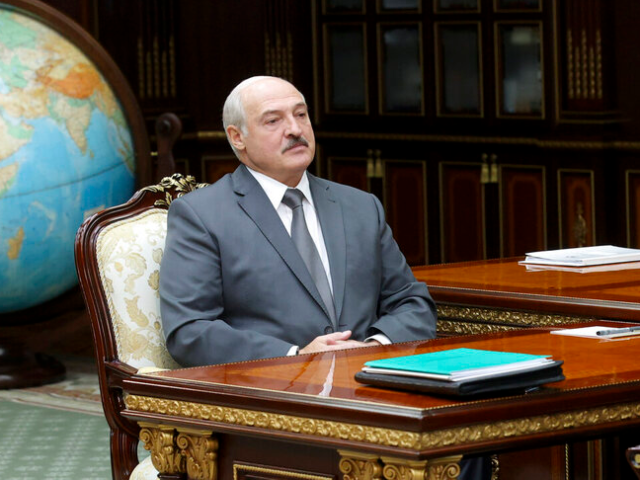Belarus claims it will be the first foreign country to receive Russia’s coronavirus vaccine candidate, Belarus state news agency BelTA reported this weekend.
Belarus President Alexander Lukashenko said on August 28 that he and Russian President Vladimir Putin had spoken recently and agreed that Russia would prioritize its neighbor and traditional ally, Belarus, in exporting the Kremlin’s vaccine candidate.
“President Putin promised me that Belarus will be the first if our government wants it,” Lukashenko said in a meeting with staff of the Belarus state dairy company Savushkin-Orsha on Friday.
“We have agreed with Putin about it. It was the Russian president who suggested it. They [Russia] have already done Phase I and Phase II trials [of the vaccine],” Lukashenko alleged.
Russia’s vaccine candidate has yet to clear domestic clinical trials. Despite this, the Kremlin has prematurely approved the vaccine for civilian use. Dubbed Sputnik V, the vaccine candidate was developed by the Gamaleya Research Institute of Russia’s Ministry of Health.
Speaking of Sputnik V’s alleged safety, Lukashenko said, “I believe him [Putin] for a reason: he tested this vaccine on his family.” In announcing Sputnik V on August 11, Putin claimed that one of his daughters had received the vaccine. Putin has two daughters; he did not confirm which one received the vaccine and neither woman has publicly confirmed the claim.
Lukashenko suggested that Belarus will participate in the vaccine candidate’s ongoing clinical trials.
“[W]e agreed that we will join them [Russia] in this work. They have carried out this work very scrupulously,” he claimed.
“We will try not only the Russian vaccine. We will see other options too. However, it should be admitted that Russians, Chinese, and Americans are ahead of others in the development and manufacturing of [Chinese coronavirus] vaccines,” the president added.
Lukashenko was widely criticized for initially dismissing the Chinese coronavirus as a mass “psychosis” and refusing to enforce strict virus prevention measures in Belarus. Instead, he encouraged citizens to visit a traditional Eastern European sauna or drink vodka “to poison the virus.”
On July 28, Lukashenko announced that he had tested positive for the Chinese coronavirus.
“I apologize for my voice. I have had to talk a lot lately. But, most amazingly, as it turned out, I had coronavirus. This is the conclusion that the doctors made yesterday. It was an asymptomatic case,” Lukashenko said in a press conference.
Lukashenko’s acceptance of Russia’s coronavirus vaccine candidate not only contradicts his previous denial of the virus’s prevalence in Belarus but also marks a reversal from his recent stance against Putin. In the run-up to Belarus’s presidential election on August 9, Lukashenko accused Putin of sending Russian mercenaries to Minsk to interfere with the upcoming vote.
The August 9 election saw Lukashenko – who has ruled over Belarus for 26 years as its first and only president – win a sixth consecutive term. Dissidents immediately disputed the results and took to the streets of the capital to protest the vote. Belarus state security forces have cracked down on protesters with excessive force; despite this, the anti-government protests have continued unabated for the past three weeks. They have since evolved into massive demonstrations calling for Lukashenko to step down and have received support from the European Union and the U.S.

COMMENTS
Please let us know if you're having issues with commenting.